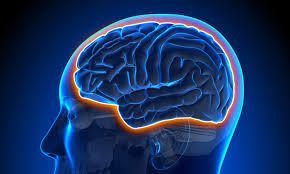
Gratitude is the practice of appreciating positive life features and has been shown to be an effective clinical tool. It also seems that it may have anti-inflammatory effects. In this study, adults with heart disease were randomised to an 8-week gratitude journaling intervention or treatment as usual (TAU). Compared to TAU, the gratitude intervention was associated with improved trait gratitude scores, reduced inflammatory biomarkers, and increased heart rate variability (a measure of the parasympathetic response). This study provides further evidence of the beneficial effects of psychological interventions on our physiology. This is particularly pertinent as increased inflammation is a common problem in both mental and physical diseases.

The purpose of this study was to examine the association between social media dependence and depressive symptoms in students from a private university that used Facebook, Instagram and/or Twitter. The results showed that there was an almost 3 times greater prevalence of depressive symptoms in people with social media dependence. It was also shown that the preferential use of Twitter over Instagram was associated with greater depressive symptoms when compared to the use of Facebook.

It is estimated that almost 50% of the population are not consuming the recommended dietary levels of magnesium. Low magnesium is associated with a greater risk of cardiovascular disease, osteoporosis, diabetes, and even mental health disorders such as depression and anxiety. Low magnesium is also a risk factor for Alzheimer’s disease. In this study, magnesium was found to reduce blood-brain barrier permeability and accelerate the clearance of the amyloid-beta peptide. Both are implicated in the development of Alzheimer’s disease. Given the many important roles of magnesium, it is imperative we consume high levels of magnesium via our diet and possibly supplementation. People under high stress are at increased susceptibility of low magnesium as stress depletes magnesium stores in the body.

In this study, the effects of daily intake of fish oil capsules (360mg DHA+540mg EPA), on aggressive and violent behaviour in patients with schizophrenia was examined. Fifty inpatients with schizophrenia, scoring high on an aggression scale were treated with either an antipsychotic medication plus fish oil or an antipsychotic plus a placebo. This study lasted twelve weeks and was a randomised, double-blind trial. Positive and negative symptoms improved in both groups, with no differences between the two groups. However, there was a greater decrease in aggression/violence in people taking fish oil compared to the placebo. This study suggests that fish oil intake in conjunction with antipsychotic medications may be helpful in reducing anger and aggression in adults with schizophrenia.